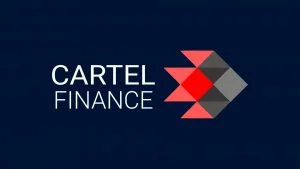Understanding Cartel Finance
Cartel finance is a complex and global issue that affects the economy, politics, and society. It involves the financial operations of criminal organizations, particularly drug cartels, and their interactions with the legitimate financial system. These operations can include money laundering, corruption, and the financing of violence and terrorism.
Origins and Evolution of Cartel Finance
The concept of cartel finance emerged in the late 20th century, with the rise of powerful drug cartels in Latin America. These organizations amassed enormous wealth through the illegal drug trade, and they needed to launder this money to use it in the legitimate economy. Over time, they developed sophisticated financial networks and strategies to achieve this.
The Role of Banks and Financial Institutions
Cartels often use banks and other financial institutions to launder their money. This can involve complex transactions designed to obscure the origin of the funds, or more straightforward methods like depositing large amounts of cash in offshore accounts. In some cases, cartels have even bought or established their own banks to facilitate their operations.
Use of Cryptocurrencies
With the rise of digital currencies like Bitcoin, cartels have found new ways to launder money and finance their operations. These currencies offer anonymity and can be transferred across borders without detection, making them an attractive option for criminal organizations.
Impacts of Cartel Finance
Cartel finance has far-reaching impacts on society and the economy. It fuels violence and corruption, undermines the rule of law, and distorts economic development. It also poses significant challenges for law enforcement and regulatory agencies.
Impacts on Society and the Economy
Cartel finance can lead to increased violence and instability, as cartels fight for control of lucrative drug routes and markets. It can also fuel corruption, as cartels use their wealth to buy influence and protection. This undermines the rule of law and weakens democratic institutions.
On the economic front, cartel finance can distort development by inflating the value of certain sectors (like real estate or luxury goods) where money is being laundered. This can lead to economic bubbles and crashes, with severe consequences for ordinary people.
Challenges for Law Enforcement and Regulation
Cartel finance poses significant challenges for law enforcement agencies. The sheer scale and complexity of these operations make them difficult to detect and disrupt. Moreover, cartels often operate across national borders, which adds an additional layer of complexity.
Regulatory agencies also face challenges in dealing with cartel finance. Existing regulations are often ill-equipped to deal with the innovative methods used by cartels, and there is a need for greater international cooperation and coordination to tackle this issue.
Conclusion
Cartel finance is a complex and multifaceted issue that requires a coordinated, global response. By understanding the mechanisms and impacts of cartel finance, we can develop more effective strategies to combat this problem and mitigate its harmful effects on society and the economy.





did not meet my expectations and failed to provide me with the level of service I was promised.
I would not recommend Cartel Finance as a broker. My experience with them was extremely disappointing. The customer service was practically non-existent, with long wait times and unhelpful representatives. Their fees were also unreasonably high compared to other brokers in the industry. Overall, I felt like I was just another number to them, and my needs as a client were not prioritized. I would advise others to steer clear of Cartel Finance and look for a more reputable and customer-focused brokerage firm.
I found the service from Cartel Finance to be average, with no major complaints but also nothing exceptional that stood out.
I am highly dissatisfied with the broker, Cartel Finance, as their lack of transparency and communication has led to numerous problems with my investments.